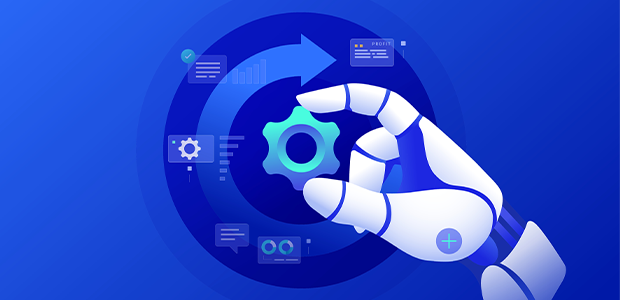
Boosting engagement and revenues: implementing GenAI into the sales engine
In today’s highly competitive sales environment, success hinges on building strong relationships and deeply understanding customer needs. Generative AI (GenAI) is redefining the game, empowering sales professionals to integrate this transformative technology seamlessly into core business strategies, unlocking new efficiencies and a decisive competitive edge.
At its core, GenAI generates new data and content by analysing patterns within vast datasets. Its true power lies in advanced deep learning models that recognise complex structures with remarkable accuracy. What would take humans hours to achieve is accomplished in seconds. This accelerates decision-making, foster innovation, and drives business growth.
Leveraging its rapid pattern detection, GenAI crafts content across various formats while delivering key business advantages – enhancing creativity, boosting efficiency, and delivering personalised experiences. Although initial adoption faced some hesitation, industries are now embracing GenAI as its tangible benefits become evident, with AI tools such as Microsoft’s Copilot, as just one example.
The rise of GenAI super users in sales teams
As a result of these benefits seen across industries, sales professionals are exploring ways to incorporate GenAI into their daily workflows to automate processes and drive efficiency.
Sales professionals have high expectations for GenAI’s potential to elevate their performance. Recent research by Panasonic Connect Europe shows: sales leaders believe top performers of the future will be GenAI super users – those who master its capabilities to gain a clear competitive edge.
It is therefore no surprise that 91% of sales professionals are already using GenAI in some form to help achieve their targets.
The benefits of GenAI for sales teams
While sales is fundamentally about building relationships and engaging with prospects, success begins with a deep understanding of customer needs. Sales teams must also grasp how their company’s value proposition stands out from the competition and how to communicate it effectively to their target audience.
However, gaining these insights demands significant time and resources, often keeping sales professionals tied to their desks instead of engaging with prospects. In fact, sales representatives spend on average, only 35% of their time selling, while 65% of their time is consumed by non-revenue-generating tasks.
This is where GenAI proves invaluable. GenAI is not a replacement for human interaction – it is a powerful amplifier. It can support in identifying high-potential leads through behavioural and intent data analysis, personalise customer interactions with tailored messaging based on individual preferences and history. It can also provide real-time insights that help sales professionals to refine their approach during client conversations.
Moving beyond the barriers to adoption
As with any emerging technology, implementing GenAI comes with challenges and initial resistance. A key hurdle is the lack of expertise and training, cited by 68% of respondents as the biggest obstacle to adoption. While sales teams recognise GenAI’s potential, they also understand that maximising its impact requires upskilling.
Security is another significant concern, with 63% of sales teams highlighting data protection as a key barrier. Given that GenAI relies on vast amounts of personal and sensitive data to generate insights for personalised customer engagement, ensuring robust security measures is critical for successful implementation.
However, business leaders have a crucial role to play in helping to overcome these concerns and embedding AI into existing workflows, ensuring it becomes a natural part of business processes rather than an isolated solution. They must also champion ongoing training and support, enabling teams to refine their AI skills continuously. Equally important, they shape the mindset around AI – positioning it as an enabler that enhances human capabilities.
Closing the adoption gap
Successfully integrating GenAI isn’t just a technological upgrade – it requires a fundamental shift in workflows, skills, and strategy to unlock its full potential.
As with any transformative technology, addressing concerns and potential resistance is crucial. To achieve this, leaders from sales, marketing, operations and IT must collaborate closely to ensure strategic adoption, seamless implementation and compliance. Only a unified approach will enable businesses to fully leverage GenAI, unlocking greater productivity, innovation and long-term success.
Embracing GenAI and gaining a competitive advantage
Companies that fail to embrace GenAI risk falling behind, as early adopters are already reaping the benefits, widening the gap in productivity and efficiency. To stay competitive, sales teams must develop AI proficiency by understanding its fundamentals, mastering prompt engineering, and applying AI-driven insights to real sales scenarios.
Generative AI marks a turning point for business – not just in sales, but across every function. It’s no longer a question of if companies will adopt it, but how fast they can integrate it to stay relevant. From automating repetitive tasks to generating strategic insights, GenAI is reshaping how organisations operate, compete, and grow. Businesses that embrace this shift early will redefine industry standards, while those that hesitate risk being left behind. This is not a passing trend – it’s the new foundation for innovation, performance, and sustainable success in a data-driven economy.
For more startup news, check out the other articles on the website, and subscribe to the magazine for free. Listen to The Cereal Entrepreneur podcast for more interviews with entrepreneurs and big-hitters in the startup ecosystem.

